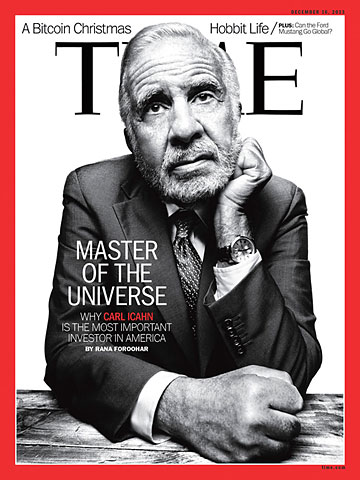
(3 of 8)
Now the barbarians are back. Once again they have something important to say to those who will pay attention. There have been big shifts in corporate behavior since the '08 crisis. Companies across the U.S. are stockpiling cash and avoiding big new investments that could help rev up the economy. Both trends are signs that businesses believe we are in a long-term "new normal" of 2% annual growth. And both are fueling the new proliferation of shareholder activism. Corporate profits are at record highs. But demand and income growth are flat, meaning those corporate earnings--and stock prices--can't stay up forever. The activists don't like the future they see.
"The economic landscape is clearly helping spur a lot of interest in activism," says Anne Sheehan, the head of corporate governance for Calstrs, the California state teachers' pension fund, which manages $176 billion and has begun partnering with activists on proposals to shift corporate strategies to improve earnings. It recently forced Timken, an Ohio steel and bearings maker whose founding family held a significant stake and had disproportionate board representation, to break itself up. "We have a strong interest in making sure companies perform better over the long haul," Sheehan says.
The number of activist interventions against public companies has been rising for a couple of years. There were 204 in both 2011 and 2012, up 21% from 2010. This year, which may set a record, there were already 138 actions by the end of August, according to an October report on shareholder activism by Citigroup. Back in the '80s, shareholder activism came mostly in the form of hostile mergers and acquisitions. This time around, the game has changed. Activists are looking less to buy out firms outright and are more likely to pursue share buybacks and board seats that would allow them greater control over corporate strategy. "If you could sit in on some of these board meetings, you'd be shocked," says Icahn, who compares CEOs and boards to eating-club presidents and their slightly dumber buddies who make them look good. "You've got to have people that own the companies sitting on the boards to hold them accountable," he says.
The targets have changed too. Rather than seeking out poor performers, activists are setting their sights on bigger, richer companies. The Citi report found that 57% of the activist campaigns waged against S&P 1500 companies in 2013 involved firms with outperforming share prices.
The big prize in the new era? The record amount of cash on the balance sheets of American firms: some $2 trillion held in this country and another $2 trillion offshore. In a slow-growth environment, firms have been reluctant to invest that money; you don't need to build a big new factory if you're not anticipating a big uptick in demand. But companies are also reluctant to repatriate offshore cash and pay U.S. corporate-tax rates, which are higher than the international average.
